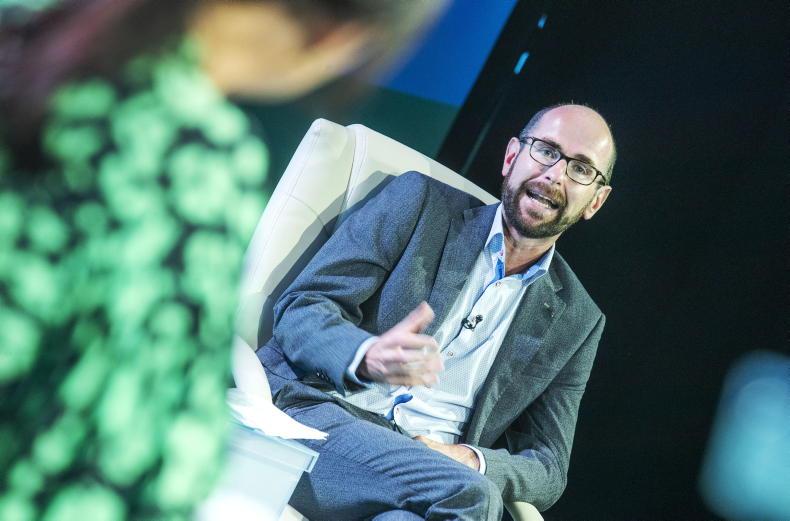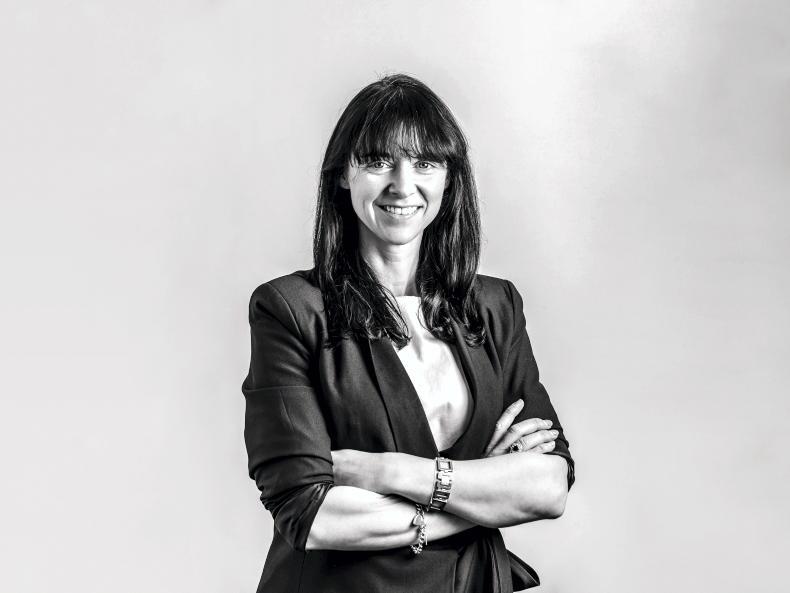Does anyone else have that “back-to-school” feeling like I have? I always feel September is a reset month. Aside from schools reopening, roads get busy again and “out of office” holiday email replies stop. All-Irelands are celebrated and commiserated.
The European Commission and Government come back to work after summer recess and the policy machine that impacts how we live and farm kicks back into gear. Ploughing, conferences and other events involuntarily populate the diary.
Over the last 18 months, a period of much change in agriculture, much of this debate has been communicated online
At these events, the future of agriculture and of rural Ireland is often discussed and debated. Elected representatives, be that politicians, farm organisations or any other body that influences the policies that impact our lives, have to stand over and defend these policies to the “real” people who are impacted by them.
Over the last 18 months, a period of much change in agriculture, much of this debate has been communicated online. And in that, much of it was not solution driven. I strongly believe that innovation was stifled by this lack of (constructive) conversation and debate and we are not the better for it.

Gerard Cleary of Glenisk. \ Finbarr O’Rourke
I was delighted to host the “entrepreneurial innovation” session at the hybrid (live speakers but streamed to the audience) annual Agricultural Science Association (ASA) conference. As a past president of the ASA, I have often been challenged as to how the organisation is contributing to the agricultural sector, or more specifically to farming at the primary production level. I can understand this perspective as frustration can build when nothing changes. For example, the American speakers at the conference will always decry the failure to adopt scientific advances in Europe.
Another challenge levelled at the organisation is to put more farm practitioners on the stage
This has been the case for many years with little, if any, change in EU policy. ASA supports the further development of ag science graduates through events and training, taking a science-based approach to food production, but is not a lobby group. The knowledge, however, is available for all to use.
Another challenge levelled at the organisation is to put more farm practitioners on the stage instead of regulators who dictate to farmers what they “should be doing” from their lofty offices. The three guests who sat on my entrepreneurial innovation panel could be described as practitioners or “doers”.

The ASA Conference took place recently and was also livestreamed online.
Tomato grower Matt Foley from Kilbush Nurseries is focused on his energy consumption and is exempt from carbon tax due to the efficiency of his operation.
Gerard Cleary from Glenisk yoghurts is relooking at their packaging, aiming to remove any element not recyclable.
Sheep farmer and founder of Cotter Agritech Nick Cotter is working with researchers and other sheep farmers to develop an app that will reduce the number of sheep that need to be dosed – the aim to reduce resistance.
As the world around their business/farm changed, they have not simply hoped that consumers would continue to want their product to enable them to continue to farm as they always did.
The world is opening up again. Get out, if you can
They are innovating, seeking solutions, adopting new innovations, learning how to use them, keeping their business relevant to an ever-changing consumer.
While we can point the finger and ask “what are others doing”, we would do well to remember that this is a collective responsibility.
The world is opening up again. Get out, if you can, and make your point in person. The world doesn’t owe any of us a living.
Does anyone else have that “back-to-school” feeling like I have? I always feel September is a reset month. Aside from schools reopening, roads get busy again and “out of office” holiday email replies stop. All-Irelands are celebrated and commiserated.
The European Commission and Government come back to work after summer recess and the policy machine that impacts how we live and farm kicks back into gear. Ploughing, conferences and other events involuntarily populate the diary.
Over the last 18 months, a period of much change in agriculture, much of this debate has been communicated online
At these events, the future of agriculture and of rural Ireland is often discussed and debated. Elected representatives, be that politicians, farm organisations or any other body that influences the policies that impact our lives, have to stand over and defend these policies to the “real” people who are impacted by them.
Over the last 18 months, a period of much change in agriculture, much of this debate has been communicated online. And in that, much of it was not solution driven. I strongly believe that innovation was stifled by this lack of (constructive) conversation and debate and we are not the better for it.

Gerard Cleary of Glenisk. \ Finbarr O’Rourke
I was delighted to host the “entrepreneurial innovation” session at the hybrid (live speakers but streamed to the audience) annual Agricultural Science Association (ASA) conference. As a past president of the ASA, I have often been challenged as to how the organisation is contributing to the agricultural sector, or more specifically to farming at the primary production level. I can understand this perspective as frustration can build when nothing changes. For example, the American speakers at the conference will always decry the failure to adopt scientific advances in Europe.
Another challenge levelled at the organisation is to put more farm practitioners on the stage
This has been the case for many years with little, if any, change in EU policy. ASA supports the further development of ag science graduates through events and training, taking a science-based approach to food production, but is not a lobby group. The knowledge, however, is available for all to use.
Another challenge levelled at the organisation is to put more farm practitioners on the stage instead of regulators who dictate to farmers what they “should be doing” from their lofty offices. The three guests who sat on my entrepreneurial innovation panel could be described as practitioners or “doers”.

The ASA Conference took place recently and was also livestreamed online.
Tomato grower Matt Foley from Kilbush Nurseries is focused on his energy consumption and is exempt from carbon tax due to the efficiency of his operation.
Gerard Cleary from Glenisk yoghurts is relooking at their packaging, aiming to remove any element not recyclable.
Sheep farmer and founder of Cotter Agritech Nick Cotter is working with researchers and other sheep farmers to develop an app that will reduce the number of sheep that need to be dosed – the aim to reduce resistance.
As the world around their business/farm changed, they have not simply hoped that consumers would continue to want their product to enable them to continue to farm as they always did.
The world is opening up again. Get out, if you can
They are innovating, seeking solutions, adopting new innovations, learning how to use them, keeping their business relevant to an ever-changing consumer.
While we can point the finger and ask “what are others doing”, we would do well to remember that this is a collective responsibility.
The world is opening up again. Get out, if you can, and make your point in person. The world doesn’t owe any of us a living.








 This is a subscriber-only article
This is a subscriber-only article










SHARING OPTIONS: